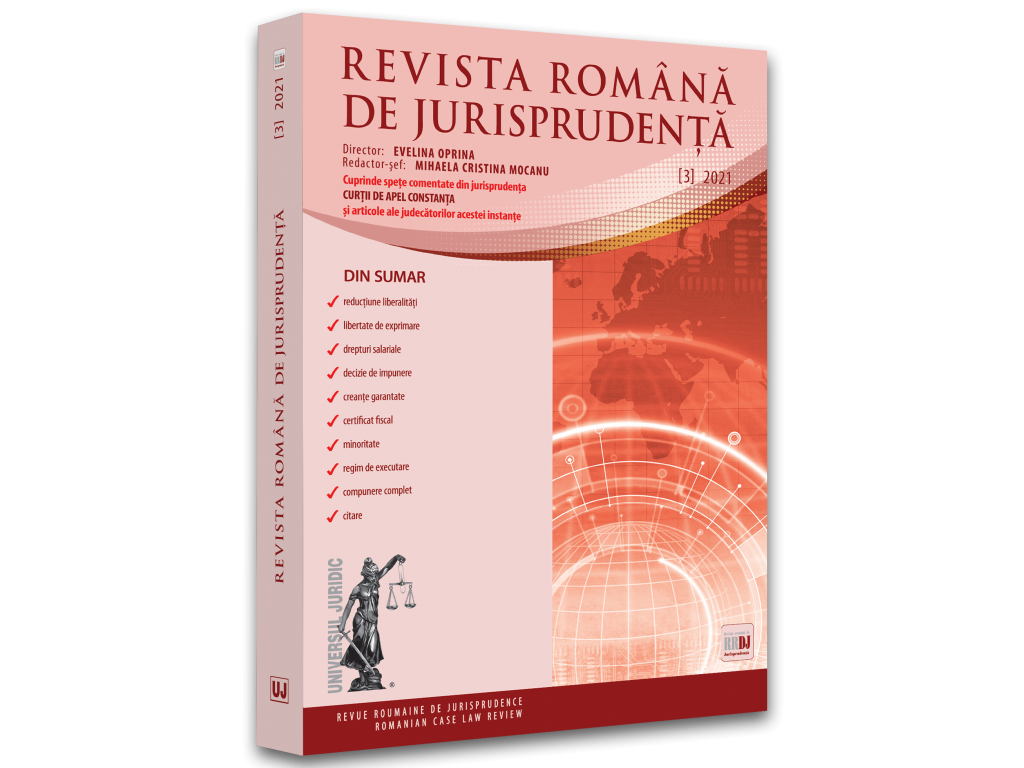Annulment of the decision to incur joint tax liability. Burden of proof of bad faith and conditions under which the principle of good faith may be invoked
DREPT ADMINISTRATIV ŞI DREPT FISCAL
Abstract
For the tax authority to be required to prove that the non-payment of tax debts is committed in bad faith, the director of the debtor company had to plead and submit evidence tending to show that he was only at fault. The decision of the court of first instance was based on the erroneous premise that good faith does not have to be demonstrated, but this principle of law, which is also found in Article 12 of the Tax Code, is not applicable in the present case, since ab initio the director of the debtor company cannot be considered to be acting in good faith since he has not complied with his obligation to pay tax debts or to submit financial statements for the last five years. Thus, the provisions of Article 12 para. (2) of the tax Procedure Code provide that good faith implies payment of tax obligations.
In other words, in order to avoid the provisions of art. 25 para. (2) letter d) of Law no. 207/2015 on the Tax Procedure Code, the plaintiff had to prove that he was only at fault and did not act intentionally. However, not only was such evidence not produced, but no argument was put forward which would lead to the conclusion that the non-payment of the tax debt could not be imputed to the claimant. The tax authority reasonably considered in the circumstances that the claimant was in bad faith and thus issued the decision to impose joint and several liability, since it was not required to prove a subjective element of the claimant with evidence other than that in the tax file.








